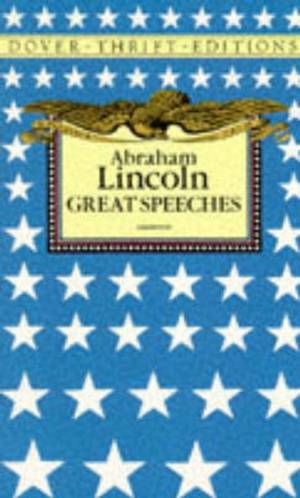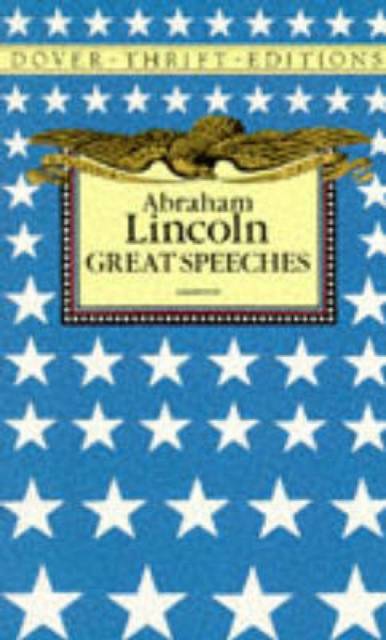
- Afhalen na 1 uur in een winkel met voorraad
- Gratis thuislevering in België vanaf € 30
- Ruim aanbod met 7 miljoen producten
- Afhalen na 1 uur in een winkel met voorraad
- Gratis thuislevering in België vanaf € 30
- Ruim aanbod met 7 miljoen producten
Zoeken
€ 11,45
+ 22 punten
Uitvoering
Omschrijving
For someone who claimed he had been educated by "littles" -- a little now and a little then -- Abraham Lincoln displayed a remarkable facility in his use of the written word. The simple yet memorable eloquence of his speeches, proclamations and personal correspondence is recorded here in a representative collection of 16 documents.
This volume contains, complete and unabridged, the Address Before the Young Men's Lyceum of Springfield, Illinois (1838), which emphasized a theme Lincoln was to return to repeatedly, namely, the capacity of a people to govern themselves; the "House Divided" speech at the Republican State Convention in Illinois (1858); the First Inaugural Address (1861), in which he appealed to the people of an already divided union for sectional harmony; the Gettysburg Address (1863), a speech delivered at ceremonies dedicating a part of the Gettysburg battlefield as a cemetery; the Letter to Mrs. Bixby (1864), expressing Lincoln's regrets over the wartime deaths of her five sons; the Second Inaugural Address (March 1865), urging a post-war nation to "bind up its wounds" and show "charity for all"; and his Last Public Address (April 11, 1865). New notes place the speeches and other documents in their respective historical contexts.
An invaluable reference for history students, this important volume will also fascinate admirers of Abraham Lincoln, Americana enthusiasts, Civil War buffs and any lover of the finely crafted phrase.
This volume contains, complete and unabridged, the Address Before the Young Men's Lyceum of Springfield, Illinois (1838), which emphasized a theme Lincoln was to return to repeatedly, namely, the capacity of a people to govern themselves; the "House Divided" speech at the Republican State Convention in Illinois (1858); the First Inaugural Address (1861), in which he appealed to the people of an already divided union for sectional harmony; the Gettysburg Address (1863), a speech delivered at ceremonies dedicating a part of the Gettysburg battlefield as a cemetery; the Letter to Mrs. Bixby (1864), expressing Lincoln's regrets over the wartime deaths of her five sons; the Second Inaugural Address (March 1865), urging a post-war nation to "bind up its wounds" and show "charity for all"; and his Last Public Address (April 11, 1865). New notes place the speeches and other documents in their respective historical contexts.
An invaluable reference for history students, this important volume will also fascinate admirers of Abraham Lincoln, Americana enthusiasts, Civil War buffs and any lover of the finely crafted phrase.
Specificaties
Betrokkenen
- Auteur(s):
- Uitgeverij:
Inhoud
- Aantal bladzijden:
- 128
- Taal:
- Engels
- Reeks:
Eigenschappen
- Productcode (EAN):
- 9780486268729
- Verschijningsdatum:
- 20/11/1991
- Uitvoering:
- Paperback
- Formaat:
- Trade paperback (VS)
- Afmetingen:
- 132 mm x 203 mm
- Gewicht:
- 113 g

Alleen bij Standaard Boekhandel
+ 22 punten op je klantenkaart van Standaard Boekhandel
Beoordelingen
We publiceren alleen reviews die voldoen aan de voorwaarden voor reviews. Bekijk onze voorwaarden voor reviews.







